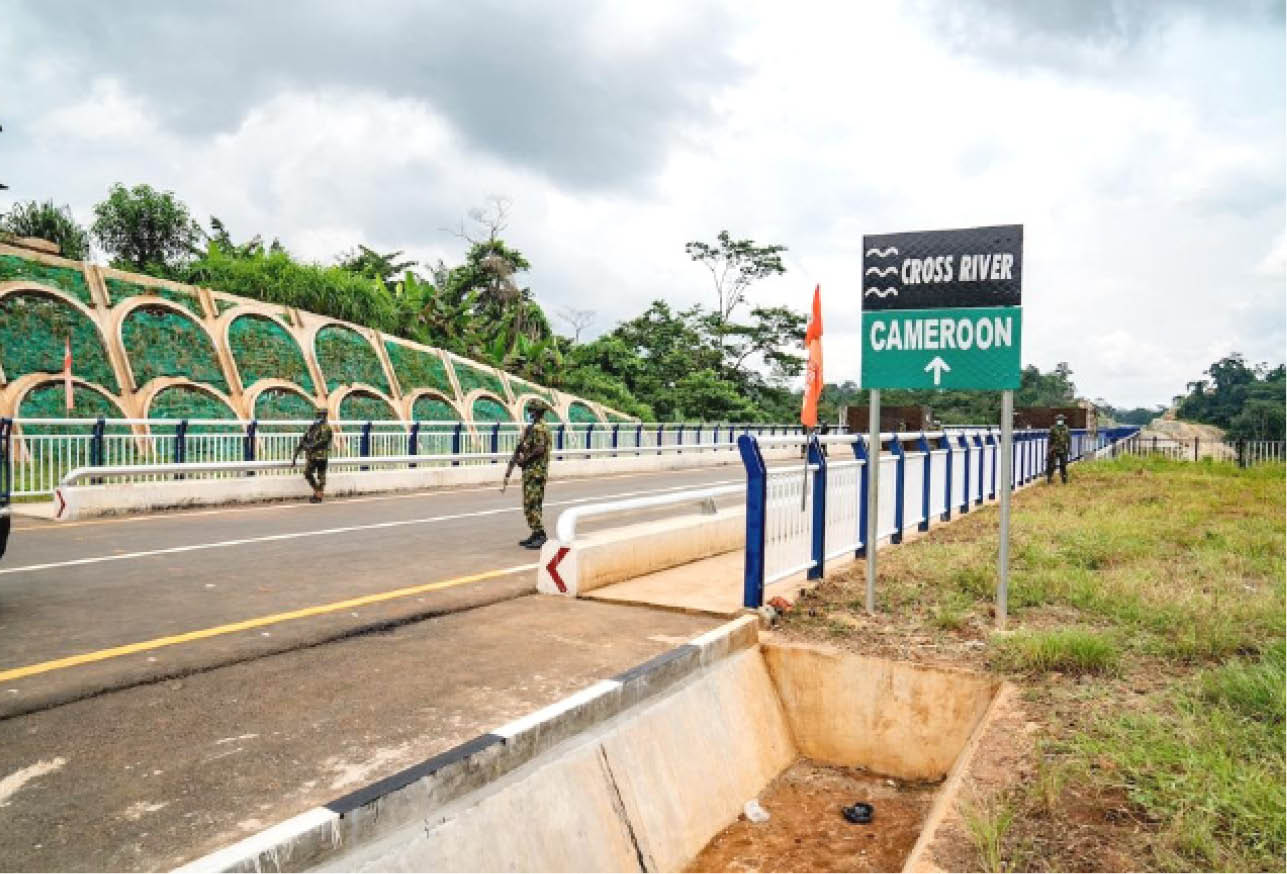How Trans-African highway brought life to communities in South-East, South-South
The completion of the Nigeria/Cameroon Multinational Highway from Bamenda through Cross River to Enugu State in Nigeria has lifted the spirits and fortunes of many locals in South-South, South-East Nigeria and other borderline communities of Cameroon. A good number of motorists, farmers, roadside traders and other users attested to this, saying that their lives have […]

Trans-African highway brought life to communities
The completion of the Nigeria/Cameroon Multinational Highway from Bamenda through Cross River to Enugu State in Nigeria has lifted the spirits and fortunes of many locals in South-South, South-East Nigeria and other borderline communities of Cameroon.
A good number of motorists, farmers, roadside traders and other users attested to this, saying that their lives have been made a lot easier, comforting and linked to the outside world.
They have therefore commended the federal government for rescuing them from the pangs of poverty and arduous trekking in the bush paths with farm yields.
- ActionAid trains youths on agricultural innovation
- Tegina parents doubt commissioner’s release without ransom
The Trans-African road also known as the Bamenda-Enugu corridor was completed recently but still awaiting formal handover to the clients, Nigeria and Cameroon governments, according to Engr. Ishaq D. Mohammed, who is the unit manager of the federal roads development project.
The road was majorly financed with funds from both countries with the involvement of the African Development Bank.
Findings show that the federal ministry of works and housing in Nigeria as well as the ministry of public works in Cameroon jointly contributed the sum of $38,915,726.71 for the long stretch of road from Bamenda through Ikom through Abakaliki-Ogoja to Enugu State.
Before the conception of the road which groundbreaking was in 2009 in Etung LGA, another border town with Cameroon, natives in that axis suffered a great deal and were cut off.
Farmers and other natives had to trek very long distances or hire a motorcycle or weather-beaten trucks to traverse the thick bush and rough terrains to arrive at community and city centres for medicare or with their wares and farm produce.
A cyclist who plies the new road, Mbang Peter, 37, said he is very happy over the completion.

He commended the government which ensured that it was completed for the benefit of the local people.
“I no longer exert too much energy or stress myself to meander through rough terrain or bad road. I no longer spend much to repair my motorbike compared with previously when this road was jot built. Then in a week, I will be with the mechanics more than three times over one fault or another. Today, I hardly visit them as regularly as I used to do before.
“I also make good money now. I am not delayed because of bad road. I can ride from the Mfum end to Ikom town within a space of 30 minutes compared with, say, over one hour previously. So, I ply this road several times in a day.”
Middle-aged, Madam Roselyn Mettem who sells garri in basins, palm oil in small jerricans and bunches of plantains along the new road said that she makes more money from her sales unlike before.
According to her, motorists patronise her more.
She said she prefers the method of selling by the new road because of huge patronage compared with if she were to transport her merchandise to faraway markets.
Roselyn said government agents do not harass her for rates and taxes.
“Motorists and other international travellers usually stopped by to buy my garri and plantain. Many of them do not bargain too much. They often buy at the rates I fix for them. So, I make lots of gains from them. Tax people don’t come here to demand more from us.
“I am happy for this road. And I thank the government for completing it for us. We evacuate our farm produce easily to the new road. From here, we easily see vehicles that help us move them to other destinations and bigger towns.”
Bisong Amos who was travelling from Cameroon through the road said the road leads into his country, and that people there were equally enjoying its associated benefits.
Amos also prayed that the time should come when the conflict in his country should end so that they can maximize the benefits by constantly travelling from Bamenda into Nigerian towns, adding that it would take fewer hours to arrive at any destinations in Cameroon.
Fashola had said the Bamenda-Enugu highway was conceived to help straighten the strained relationship between Nigeria and Cameroon, following the International Court of Justice judgment of 10th October 2002 on the Bakassi Peninsula border dispute between Nigeria and Cameroon.
This would in part be through the facilitation of movement of people, goods and services between both countries.
They said it is also a major economic route connecting the ECOWAS countries and their counterparts in the Economic Community of Central African States (ECCAS).
The African Development Bank (AfDB) had granted a joint loan to Nigeria and Cameroon in a tripartite loan agreement.
Fashola said there still remains the Joint Border Bridge and the Joint Border Post which are just being completed.
